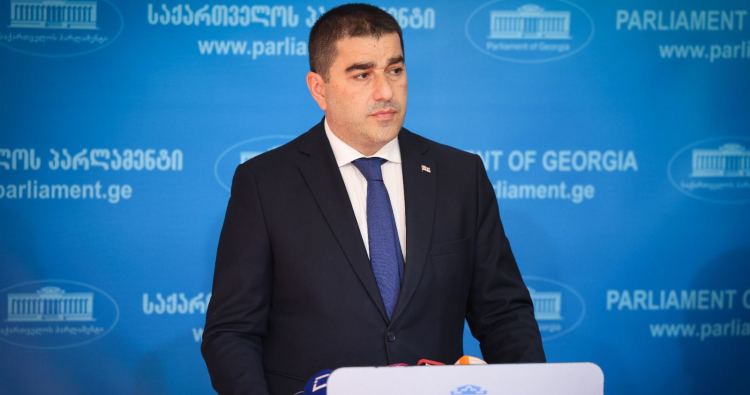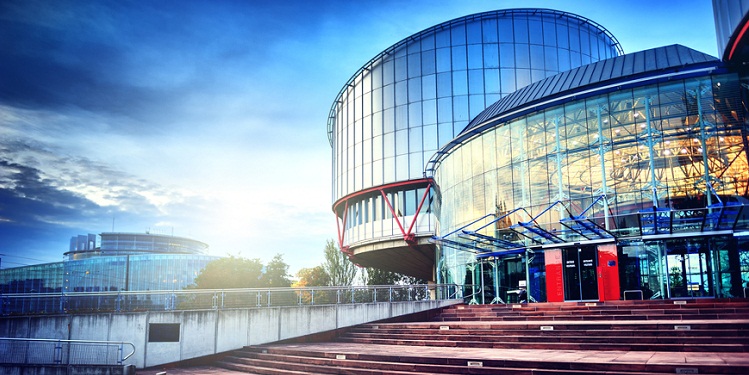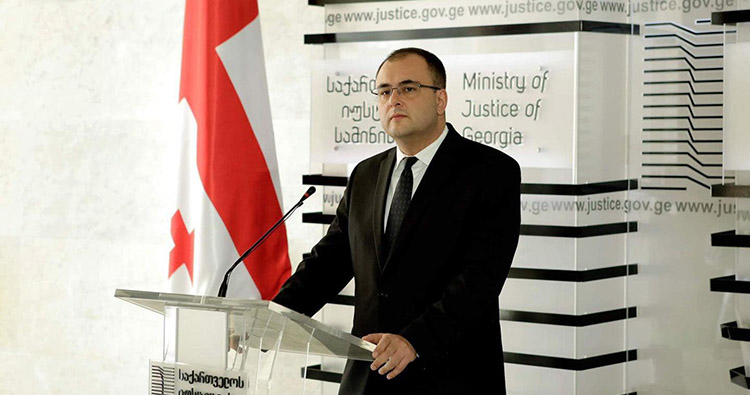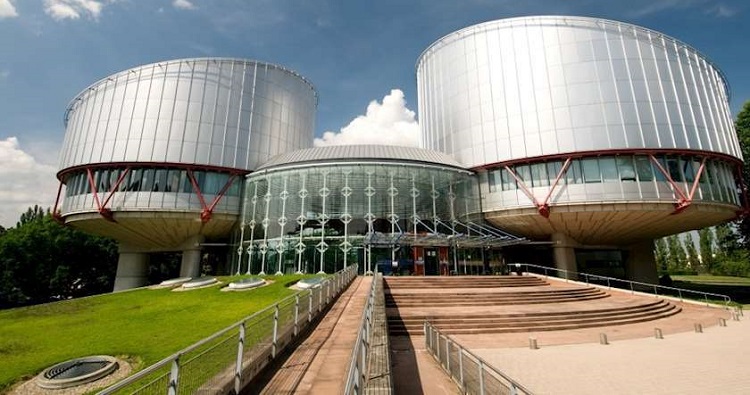Parliament Speaker: ECHR’s ruling on former President Saakashvili “confirms need for transparency law”

Papuashvili added the ECHR ruling had been made “not only on Saakashvili, but also on his regime and his patrons”. Photo: Georgian Parliament
Georgian Parliament Speaker Shalva Papuashvili on Thursday said the latest ruling of the European Court of Human Rights on domestic criminal proceedings against the former President Mikheil Saakashvili had “confirmed the need” for the controversial domestic law on transparency of foreign influence, adding the legislative piece would reveal sources of “financing of defamation campaigns”.
The ECHR on Thursday said there were “no grounds” for questioning the fairness of criminal proceedings in Georgia against the imprisoned former President, in comments on a case related to a 2005 assault on a member of the country’s Parliament and the former President’s 2008 pardoning of four former high-ranking officers of the Interior Ministry who had been convicted of murder.
Papuashvili said the ruling had “finally made it clear for everyone” that decisions of the domestic judiciary were “fair and do not contain any signs of political justice, which has been constantly alleged by internal and external ill-wishers of our court for 10 years”.
For 10 years, we have constantly heard that there is a clan [of judges] in the court, that the court is biased and that justice is political. This slander is being spread by our radical opposition, their allied NGOs and their overseeing foreign powers who, in some cases, covertly and illegally fund these parties and NGOs”, he said.
The official said the ECHR had recently rejected a claim by Nika Gvaramia, the founder of the domestic Mtavari Arkhi TV, against his conviction for improper commercial deals in 2015 and 2019 during his time at the helm of Rustavi 2 TV.
He added the Court, in its 2022 decision, had also ruled that an application by former Georgian Defence Minister Bacho Akhalaia, who had alleged unlawful detention and politically motivated prosecution against him, was inadmissible and “manifestly unfounded”.
Papuashvili added Saakashvili had last month been “forced to withdraw” his complaint from the ECHR that had asked the Court to order domestic authorities to transfer him to a foreign country for treatment, “realising he would surely lose the case”.
For 10 years now, individual groups have been trying to damage the name and image of the Georgian court and the state in general. Let us remind you how many resolutions of the European Parliament demanded a release of Saakashvili, how many foreign diplomats and high-ranking politicians tried in vain to claim that Saakashvili's imprisonment was illegal. I will remind you of the Free Misha campaign, in which the United National Movement [opposition party] and NGOs inside, and their lobbyists outside the country, were involved”, he said.
In order to secure a release of Saakashvili, they threatened us with sanctions and spread misinformation. Meanwhile, they created greenhouse conditions for Saakashvili abroad and his [UNM] party in Georgia, and they did not lack funding and patronage. They met him in Brussels and Washington, announced their support and appointed him in positions, they encouraged the radical opposition from outside, and finally they secretly sneaked him into Georgia before the elections”, the lawmaker also claimed.
The chief Georgian legislator further stressed the “same individuals who launched the Free Misha campaign abroad” were involved in the ongoing public protests against the law on transparency of foreign influence and were “still spreading misinformation and still threatening us with sanctions”.
Today is the day when the 10-year campaign against Georgian justice has ended in failure and justice was celebrated. The 10-year narrative has disintegrated on the radical opposition, non-governmental organisations and their foreign patrons - not by our hands, but by the Strasbourg court”, he alleged.
Papuashvili added the ECHR ruling had been made “not only on Saakashvili, but also on his regime and his patrons”.
The controversial law requires registration of non-commercial legal entities and media outlets in the country as “pursuing the interests of a foreign power” if they derive more than 20 percent of their funding from abroad.
 Tweet
Tweet  Share
Share



